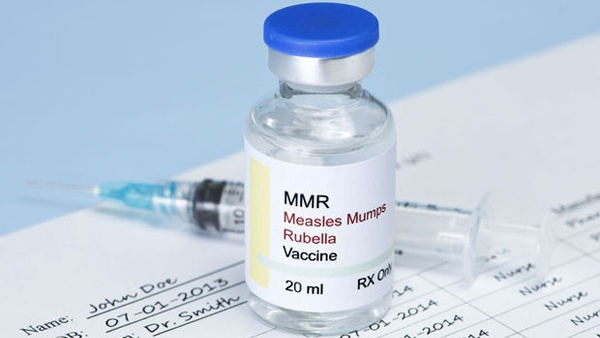An Indiana State Department of Health order gives pharmacists the ability to administer the MMR vaccination to adults.

(Indianapolis, Ind.) - Indiana pharmacists can administer the measles vaccines to any adult, regardless of whether they have a prescription.
The Indiana State Department of Health issued an order Wednesday which allows pharmacies and pharmacists to give people the measles, mumps and rubella (MMR) vaccine.
The hope is to stop Indiana from joining the growing list of states with a measles outbreak. The illness has been diagnosed in more than 700 people in 22 states so far this year – the highest number since 1994. The cases include one person in northern Indiana diagnosed in early April.
“Vaccination is the best way to prevent the spread of this highly contagious disease, and we want to remove any barriers that may prevent Hoosiers from being protected during this nationwide outbreak,” said State Health Commissioner Kris Box.
According to the ISDH, Indiana residents choosing to seek a MMR vaccine from a pharmacist using the order should state they will be using the state health commissioner’s standing order.
The order will stay in place until the end of 2019.
According to the Centers for Disease Control and Prevention, the MMR vaccine is safe and 97 percent effective at preventing measles after the second dose. The CDC recommends two doses of MMR vaccine for children, the first at age 12 to 15 months and the second between 4 and 6 years. Many Indiana adults may not be aware of their vaccination status or may have received a single dose of inactive virus, which does not provide the full protection. These individuals are encouraged to ask their healthcare provider about receiving a dose of MMR.
Measles is caused by a virus and spreads through the air when an infected person coughs or sneezes. It can remain in the air for two hours after an infected person leaves an area. The illness typically begins with cold-like symptoms, such as a low fever, cough, runny nose and conjunctivitis, or pink eye. Then a rash of blotchy red spots breaks out starting at the head and spreading to the rest of the body.
Measles can be serious, and there is no treatment or cure. Some children may have very mild symptoms, but others may face more serious complications, including pneumonia and encephalitis.
The CDC says 9 out of 10 unvaccinated people will contract measles if exposed to the virus.

 Ripley Co. Chamber to Host Meet the Candidates Night
Ripley Co. Chamber to Host Meet the Candidates Night
 Dearborn Co. 4-H Member Enjoys 4-H Day at the Statehouse
Dearborn Co. 4-H Member Enjoys 4-H Day at the Statehouse
 Lawrenceburg's Newest Restaurant Taking Reservations
Lawrenceburg's Newest Restaurant Taking Reservations
 Progress Being Made on Harrison Splash Pad
Progress Being Made on Harrison Splash Pad
 Talen Energy Corporation Agrees to Acquire Lawrenceburg Power Plant
Talen Energy Corporation Agrees to Acquire Lawrenceburg Power Plant
 Aurora Elementary Robotics Teams Qualify for State Competition
Aurora Elementary Robotics Teams Qualify for State Competition











